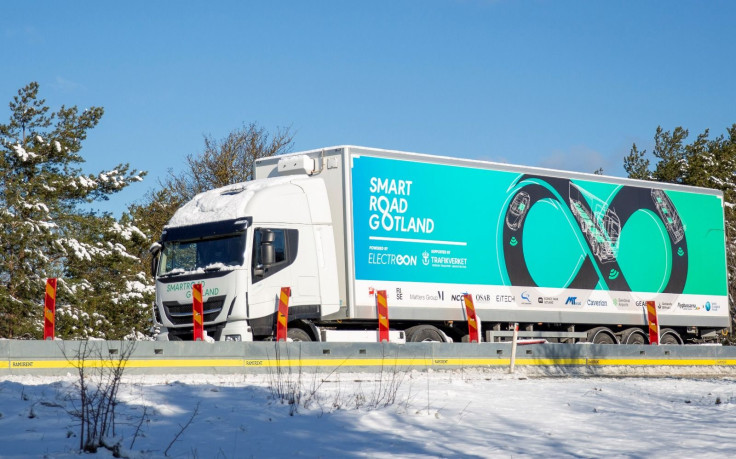Charge As You Drive: Tel Aviv To Be First To Test Electric Roads To Power Public Transport
KEY POINTS
- Tel Aviv will be the first city to test electric roads technology
- The project will use government and private funding
- The test route will be 1.2 miles long and the electric road will be 0.37 miles
Israeli capital Tel Aviv will soon create wireless electric roads to charge public transportation in the city, novel use of electric vehicle (EV) technology to battle air pollution, says a report.
Tel Aviv will become the first city to test such technology and will use government and private funds for the same. Israel-based tech company ElectReon, which works on wireless charging technology for EVs, is collaborating with the Tel Aviv-Yafo municipality and Dan Bus Company on the project.
The test route will be 1.2 miles long, from Tel Aviv University Railway Station to Klatzkin Terminal in Ramat Aviv. Of this length, 0.37 miles will be electric, a little less than half a mile.
ElectReon recently deployed this technology in Gotland Island, Sweden, where it constructed 0.99 miles of electric road on a 2.5 miles road to charge an electric bus and a truck. The company will reportedly undertake similar projects in Germany and other parts of Israel later this year.
The testing and implementation will take two months’ time, after which Dan Bus Company will start regular trips on the route. Specially equipped buses will be used for the test runs.
A spokesperson from the municipality told CNN Business that construction is already over, but the route needs to be tested before regular operations, or tests, can begin.
“Our strategic action plan to prepare for climate change has placed the fight against pollution at the top of the municipality’s environmental agenda. If the pilot is successful, we will evaluate its expansion to additional locations in the city,” Ron Huldai, the mayor of the city, said in a press release.

If this project is successful, and vehicles can be charged fully while running on roads, it would eliminate the need for constructing charging stations, thus saving land resources, Meital Lehavi, deputy mayor for transportation in Tel Aviv, said.
ElectReon explained on its website how the technology works. Under the asphalt of the street lies a web of copper coils get draw energy from the electric grid. This energy interacts with vehicles running on the road, which will have receivers on their floor to charge their batteries while moving.
The technology is claimed to have many advantages, saving time on charging, and as the vehicle is charging as it runs, it will also remove range anxiety and dependence on battery performance. The company also claims that battery size can be reduced, which would make vehicles cheaper and lighter. It would also mean more space for the passengers and cargo.
© Copyright IBTimes 2025. All rights reserved.





















